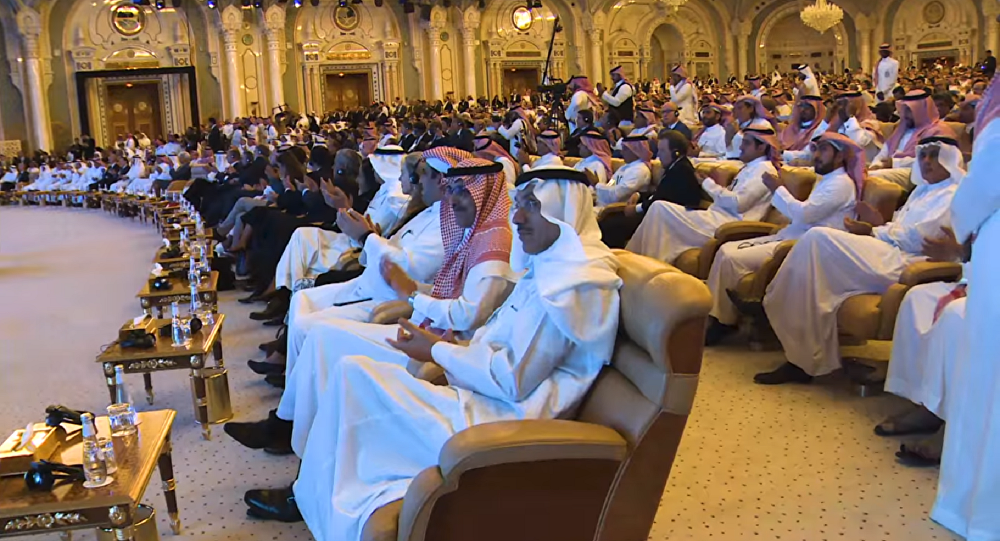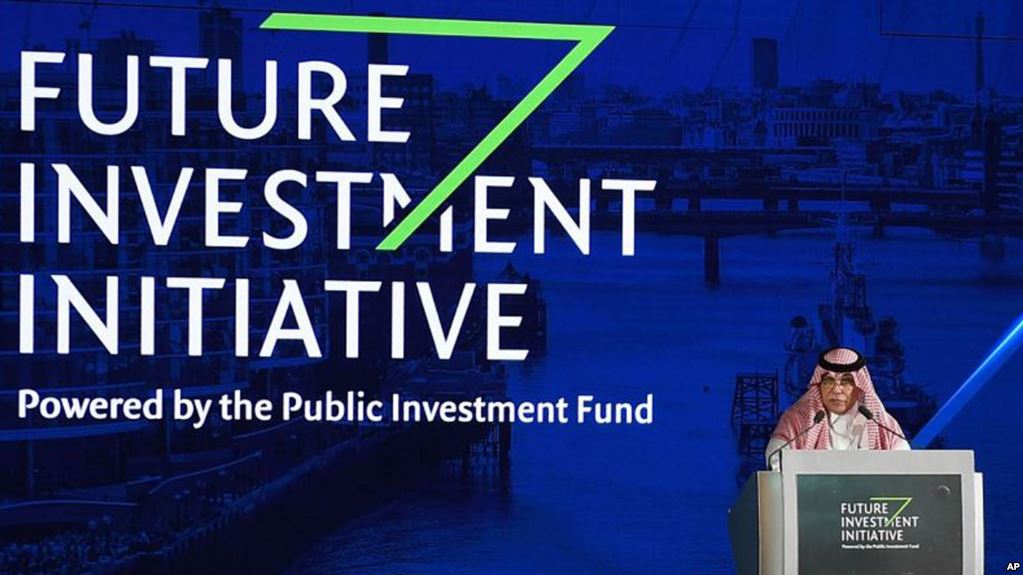- Saudi Sees Deals Worth $50 Billion at Investment Conference Despite Boycotts
Saudi Arabia was set to sign deals worth $50 billion on Tuesday at the opening of an investment conference despite being overshadowed by the killing of journalist Jamal Khashoggi which prompted a boycott by Western politicians, top world bankers and company executives.
Energy Minister Khalid al-Falih told a panel that the world’s largest oil exporter was passing through a “crisis of a sort” but would power ahead with economic diversification plans.
“Nobody in the kingdom can justify it (Khashoggi’s killing) or explain it,” he said.
Speaking at the opening session, Saudi businesswoman Lubna Olayan described the killing of the dissident Saudi journalist which has sparked a global outcry and strained Riyadh’s ties with the West as “alien to our culture”.
“It is natural that our thoughts tend to focus on recent events surrounding the death of Jamal Khashoggi … may he rest in peace,” she said.
 Hundreds of bankers and company executives joined officials at a palatial Riyadh hotel for the Future Investment Initiative. But while last year’s inaugural conference drew the global business elite, this year’s event has been marred by the pullout of more than two dozen high-level speakers.
Hundreds of bankers and company executives joined officials at a palatial Riyadh hotel for the Future Investment Initiative. But while last year’s inaugural conference drew the global business elite, this year’s event has been marred by the pullout of more than two dozen high-level speakers.
Khashoggi, a critic of Saudi Arabia’s crown prince, vanished after he entered its consulate in Istanbul on Oct 2. After first denying any involvement in his disappearance, Riyadh on Saturday said Khashoggi died during a fight in the consulate. Later, a Saudi official attributed the death to a chokehold.
Turkey’s president said in parliament in Ankara on Tuesday that there was strong evidence the killing was savage and planned. He said he was not satisfied with Riyadh placing the blame on some of its intelligence agents.
Many foreign investors see a risk that the Khashoggi case, which drew global condemnation, could damage Riyadh’s ties with Western governments. Saudi Arabia’s stock index was down 1.7 percent in afternoon trading on persistent investor concern.
U.S. Treasury Secretary Steven Mnuchin and senior ministers from Britain and France pulled out of the event along with chief executives or chairmen of about a dozen big financial firms such as JP Morgan Chase and HSBC, and International Monetary Fund chief Christine Lagarde.
NEW DEALS
However, Saudi Arabia is set to sign deals worth more than $50 billion on the opening day in the oil, gas, industries and infrastructure sectors with firms such as Trafigura, Total, Hyundai, Norinco, Schlumberger, Halliburton and Baker Hughes.
Oil giant Saudi Aramco said it signed 15 memoranda of understandings worth $34 billion.
Total Chief Executive Patrick Pouyanné, a panelist on Tuesday, said the French oil and gas producer would announce a retail network in the kingdom with Saudi Aramco.
Russia sent a large delegation led by Direct Investment Fund head Kirill Dmitriev, who said Saudi Arabia’s economic transformation was “important for the world” and that partnerships between sovereign wealth funds was a “great opportunity”.
The managing director of the kingdom’s sovereign wealth fund, the main backer of the event, said the country was becoming more transparent and that the Saudi Public Investment Fund continued to develop new industries under economic reforms launched by Crown Prince Mohammed bin Salman.
Yasir al-Rumayyan said the fund has invested in 50 or 60 firms via SoftBank Group’s Vision Fund and would bring most of those businesses to the kingdom. PIF has committed to invest $45 billion in Vision Fund.
Many Western banks and other companies, fearful of losing business such as fees from arranging deals for Saudi Arabia’s $250 billion sovereign wealth fund, sent lower-level executives even as their top people stayed away.
Top executives of Asian firms have been hesitant to pull out, so the participation of Chinese and Japanese institutions may help Riyadh claim the three-day conference as a success.
For these reasons, the Western boycott may have little long-term impact on Saudi economic prospects.
Foreigners sold a net 4.01 billion riyals ($1.07 billion) of Saudi equities last week, by far the biggest pull-out of overseas money since the stock market opened to direct foreign investment in mid-2015.
The event is being held at the Ritz-Carlton in Riyadh, where scores of princes, businessmen and officials were detained in a crackdown on corruption soon after last year’s conference ended.
Authorities said the crackdown extracted over $100 billion from suspects in financial settlements. But that figure has not been verified, and details of the alleged crimes were never made public, fuelling investors’ concern about legal transparency.


 Forex2 weeks ago
Forex2 weeks ago


 Naira2 weeks ago
Naira2 weeks ago
 Naira4 weeks ago
Naira4 weeks ago
 Billionaire Watch1 week ago
Billionaire Watch1 week ago
 Company News4 weeks ago
Company News4 weeks ago




 Naira2 weeks ago
Naira2 weeks ago




 Naira1 week ago
Naira1 week ago




 Naira4 weeks ago
Naira4 weeks ago






















